How can conservation agriculture improve the climate resilience of women farmers?
Women who farm on small plots of land to produce food and income for their families are particularly vulnerable to the impacts of climate change. An interdisciplinary team of researchers from Brazil, Canada, Nigeria and the UK is working with smallholder women farmers in Brazil and Nigeria to promote sustainable agricultural practices that will improve their climate resilience.
Talk like an agricultural researcher
Climate resilience — the ability to respond and adapt to the impacts of climate change
Conservation agriculture — a sustainable approach to farming based on the principles of keeping soil covered, minimal soil disturbance and crop rotation
Food security — the continuous state of having reliable access to enough affordable, healthy food
No-till farming — a method of growing crops that minimises soil disturbance
Participatory approach — a research method in which the subjects of the research participate in the research process
Smallholder farmer — a farmer who grows food and/or raises livestock on a small piece of land for their own subsistence and to generate income
Topsoil — the uppermost layer of soil which contains organic matter and nutrients essential for plant growth
Extreme weather events caused by climate change, such as droughts and floods, are having devastating consequences for agriculture. Smallholder farmers are particularly vulnerable to the impacts of climate change, as they typically have limited access to funds, technology, tools and weather-related information. Women farmers are disproportionately affected as cultural norms are likely to restrict their access to land, tools and training.
In low- and middle-income countries (LMICs), smallholder women farmers play a vital role in providing food security and an income for their families. However, in these countries, women often have lower socioeconomic status and face sexism and other barriers that may limit their opportunities to reach their potential as farmers. “Smallholder women farmers are also often excluded from policy decisions, making it harder for them to adapt to and recover from climate impacts,” says Dr Kelly McShane from Toronto Metropolitan University.
Kelly is leading an interdisciplinary team of researchers from Brazil, Canada, Nigeria and the UK, along with smallholder women farmers and other stakeholders in Brazil and Nigeria, to promote conservation agriculture practices as a method to improve smallholder women farmers’ climate resilience in LMICs.
Conservation agriculture is a sustainable way of farming that boosts productivity and reduces environmental damage by protecting soil and conserving water. “It is based on three key principles: minimising soil disturbance (for example, by using no-till farming), keeping the soil covered (with crops or mulch), and rotating different crops to keep the soil healthy,” explains Dr Gustavo Fonseca de Almeida from the Federal University of Sao Carlos. “These practices are critical for preventing soil erosion, the loss of valuable topsoil, and the release of stored carbon into the atmosphere.”
An equal approach
The team is taking a participatory approach to this project, which means that smallholder women farmers are equal partners in the research process, helping to shape the research questions, collect and interpret the data, and design practical solutions. “This approach empowers smallholder women farmers to voice their needs, promotes knowledge co-production, and ensures that policy recommendations are grounded in real-world experience and lead to practical, long-lasting change,” says Ayesha Tabassum from York University.
So far, the team has been interviewing smallholder women farmers, policymakers and business leaders in Brazil and Nigeria to learn about the farmers’ lived experiences and understand what socioeconomic and climate-related challenges they face. “In our meetings, we discuss what conservation agriculture practices the farmers use,” says Dr Valerie Babatope from Toronto Metropolitan University. “We also ask what training they would find useful to learn new farming methods that could improve soil health, water efficiency and energy conservation.”
The team is investigating what barriers prevent women smallholder farmers from implementing conservation agriculture practices and, in partnership with the farmers themselves, developing training programmes to teach farmers environmentally friendly techniques to improve their land and yields.
An interdisciplinary project
Part of what makes this work so unique is that the members of the research team all come from different disciplinary backgrounds, meaning they bring a variety of skills and expertise to the project.
As a clinical psychologist, Kelly understands the interpersonal and systemic issues affecting women farmers, and uses her data analysis skills to refine the team’s results. “My background has trained me to ask questions about norms and structures within families, communities and organisations that might facilitate change and increase the rate of adoption of conservation agriculture,” she says.
Gustavo is an agroecologist who evaluates conservation agriculture practices. “Agroecology provides the scientific base for the ecological principles applied to farming and food systems,” he says. His background allows him to collaborate with social scientists to design surveys to understand farmers’ lived experiences, with economists to assess the cost-benefit trade-offs of different agricultural practices, with engineers to develop low-cost tools for conservation agriculture, and with policymakers to discuss how conservation agriculture aligns with national goals.
“My background in human resource management enables me to bring an equity-focused approach to this project,” says Ayesha, who focuses on the people at the heart of the project and understands the structural inequalities limiting smallholder women farmers. She is developing training activities and resources that prioritise inclusion, such as visual aids so that women with low literacy can participate. She is also helping to develop a peer-learning network where experienced farmers mentor newer farmers and keep field diaries to pass on their knowledge.
Reference
https://doi.org/10.33424/FUTURUM634
Smallholder women farmers from the Sete Barras Alliance in Brazil meet to discuss farming challenges and opportunities.
© Laura Martins Carvalho
© Gustavo Fonseca de Almeida
© Laura Martins Carvalho
Team members interview a banana farmer.
© Laura Martins Carvalho
“My expertise in business administration informs our strategies to enhance smallholder women farmers’ adaptive capacities,” says Valerie. “My research on mentorship and empowerment helps us to build sustainable peer-support networks.” Her knowledge helps the team consider a business angle so that projects to train women farmers in conservation agriculture techniques are economically viable as well as environmentally sustainable.
A hopeful future
“We know that conservation agriculture increases climate resilience, as it improves soil health and reduces water consumption,” says Kelly. “So, our goal is to educate smallholder women farmers about conservation agriculture and provide funding for them to adopt sustainable practices.” The team aims to empower smallholder women farmers in Brazil and Nigeria by developing their skills, followed by a pilot funding initiative giving them financial resources to invest in the technologies they learn about during their training.
Not only will this project improve the lives of the Brazilian and Nigerian farmers involved in the project, but the team will also ensure that smallholder women farmers’ voices are heard during policy discussions on proposals to support vulnerable farmers in other regions. In this way, the team hopes to influence policy changes so that smallholder women farmers in LMICs around the world will be better able to adapt to the challenges of climate change.
Institutions: Federal University of Paraná, Federal University of Sao Carlos (Brazil); MacEwan University, Toronto Metropolitan University, York University (Canada); Babcock University, National Root Crops Research Institute, Pan-Atlantic University, University of Abuja (Nigeria); King’s College London, University of Kent, University of Surrey (UK)
Fields of research: Agriculture, agroecology, business administration, human resource management, psychology, social sciences
Research project: Promoting conservation agriculture to help smallholder women farmers adapt to climate change
Funders: New Frontiers in Research Fund (NFRF, Canada); UK Research and Innovation (UKRI); Fundação de Amparo à Pesquisa do Estado de São Paulo (FAPESP, Brazil)
About clinical psychology
While clinical psychology is often associated with treating patients with mental health conditions, it can also involve working with communities and businesses. “The past 20 years have seen a growth in ‘positive psychology’, which offers guidance for everyone as they pursue growth, change and personal development,” says Kelly. “For example, I often work with employees and leaders to examine the processes and procedures that are impacting individuals’ abilities to thrive and flourish in the workplace.”
Psychology is about understanding how the brain works, so research in this field can be applied to a wide range of areas. “The versatility and flexibility of clinical psychology create many career opportunities for anyone with an entrepreneurial mindset,” adds Kelly.
Meet Kelly
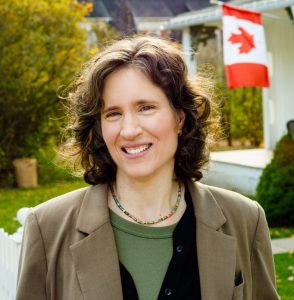
As a teenager, I was in the Girl Guides of Canada, a community organisation for girls to focus on empowerment, community and the outdoors. I lived for summer camp – to be outdoors in nature with friends! My time with the Girl Guides inspired my focus on supporting communities and services.
I went to university believing I would become a teacher, having been inspired by many of my schoolteachers. However, when I took a psychology course, I was fortunate to be selected for a research position which really shaped my interest in psychology.
My interest in psychology and passion for service led me to community-based research. For my PhD, I conducted a participatory research project about health promotion with an Inuit community in Ottawa, Canada. This involved developing a collaborative partnership based on mutual respect in order to support the community to achieve its goals – which remains a core approach in my work today.
As a social scientist in our conservation agriculture project, I can identify the factors that need to be measured and find the right tools for the job. This often requires a balance between what is scientifically rigorous and what is practically feasible for the community context.
Meet Gustavo

When I was a teenager, I was passionate about playing sports and being around farm animals. When I realised that a career in soccer or basketball was unrealistic, I looked for options to work with animals.
I studied animal science at university, then moved to Australia for a training programme and to learn English. I studied the Australian breeding programmes for livestock production, with the aim of applying that knowledge when I returned to Brazil. When I returned, I worked as a marketer for a genetic improvement software company to develop the pork industry in Brazil. However, when I visited industrial pig farms, I was shocked by what I saw and how the animals were treated in cages. As someone with a passion for animals, I decided I could not support the industrial way of farming that I had seen.
I went back to university to study a master’s in agroecology, then completed a PhD in Denmark investigating organic animal production systems. I found that it is possible to farm animals with high welfare standards and while respecting their natural behaviour. So, I returned to Brazil to advise farmers on alternative systems that produce food while respecting animals and nature.
About business administration
Business administration is the study of how businesses can best manage tasks, procedures and resources. It is a diverse field that covers everything about running a business, such as handling finances, recruiting the right candidates, implementing good leadership and peer-support, and setting company goals. Working in business administration can directly impact organisational and societal well-being, as it helps address real-world challenges and improves the working conditions of many people’s lives.
“Young people should pursue business administration because it offers unparalleled versatility,” says Valerie. “You will gain skills in analytics, strategy and human capital management, which are vital to every industry. From launching start-ups to driving sustainability in global corporations, business administration empowers you to innovate and solve pressing challenges.”
Meet Valerie

I have always had a passion for supporting social impact and systemic change for women’s voices to be heard. This has inspired my focus on social entrepreneurship and organisational mentorship. Witnessing Nigerian entrepreneurship influenced me to study business administration in Nigeria and the UK, as I had a desire to understand organisational dynamics that drive economic and social progress.
In 2019, I founded my own start-up – a gourmet shawarma business in Lagos, Nigeria. More recently, I have served as a human resources consultant for the Canadian start-up, Fairly AI. These experiences have cemented my belief in business as a tool for empowerment, and I now integrate these principles into our project investigating climate resilience for women farmers.
With this project, I most enjoy the opportunity to directly empower marginalised women through actionable research, aligning with my lifelong commitment to gender equity and community development. Collaborating with experts across environmental science, policy and grassroots agriculture to co-create solutions that merge business acumen with ecological stewardship has been deeply rewarding.
About human resource management
Human resource management (HRM) combines ideas from psychology, business and economics to manage employees and run businesses in positive and sustainable ways. “HRM is a field where you can directly influence the quality of people’s work lives, from hiring and development to well-being and growth,” says Ayesha. “I find it extremely rewarding to design systems that help people reach their potential, create fair and inclusive workplaces, and build cultures where people feel valued and supported.”
HRM is shaped by changes in technology, social movements and economic trends. For example, recent developments in artificial intelligence and shifts towards remote and hybrid working are creating opportunities for future HRM specialists to champion employee wellness and sustainable business development.
Meet Ayesha

As a teenager, I loved reading, drawing and crafting, which shaped the way I approach my work today. Reading gave me the critical thinking skills required for investigating human-centred problems, while art and crafting taught me creativity and mindfulness.
My inspiration to study HRM came from a deep interest in understanding how people function within organisations. I realised that organisations fail to attract top talents as they lack insights on complex human behaviour. This sparked my interest in HRM as a function that acts at the intersection of human behaviour, business strategy and economic sustainability.
I studied HRM at university in Bangladesh, before pursuing postgraduate studies in Canada. My academic and cultural journey from Bangladesh to Canada has enriched me with the global insight and local sensitivity that are needed for our project on enhancing climate resilience.
I enjoy the fact that this project allows me to apply HRM beyond organisational settings to directly empower women and transform their lives. I take pride in implementing people-centred strategies for women who are often underrepresented in agricultural decision-making.
Do you have a question for Kelly, Gustavo, Valerie or Ayesha?
Write it in the comments box below and they will get back to you. (Remember, researchers are very busy people, so you may have to wait a few days.)

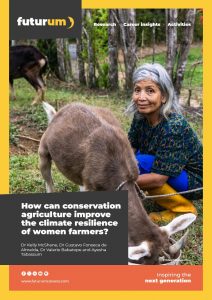
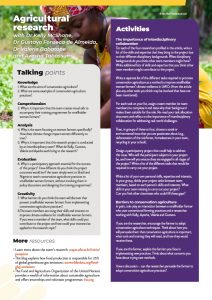
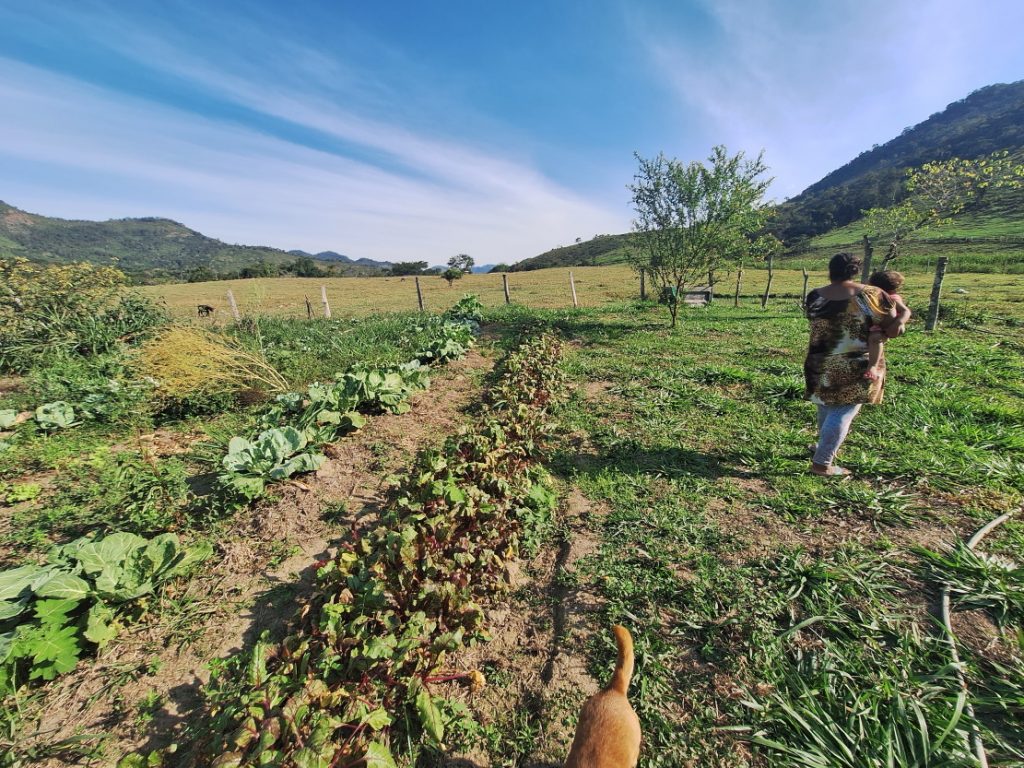
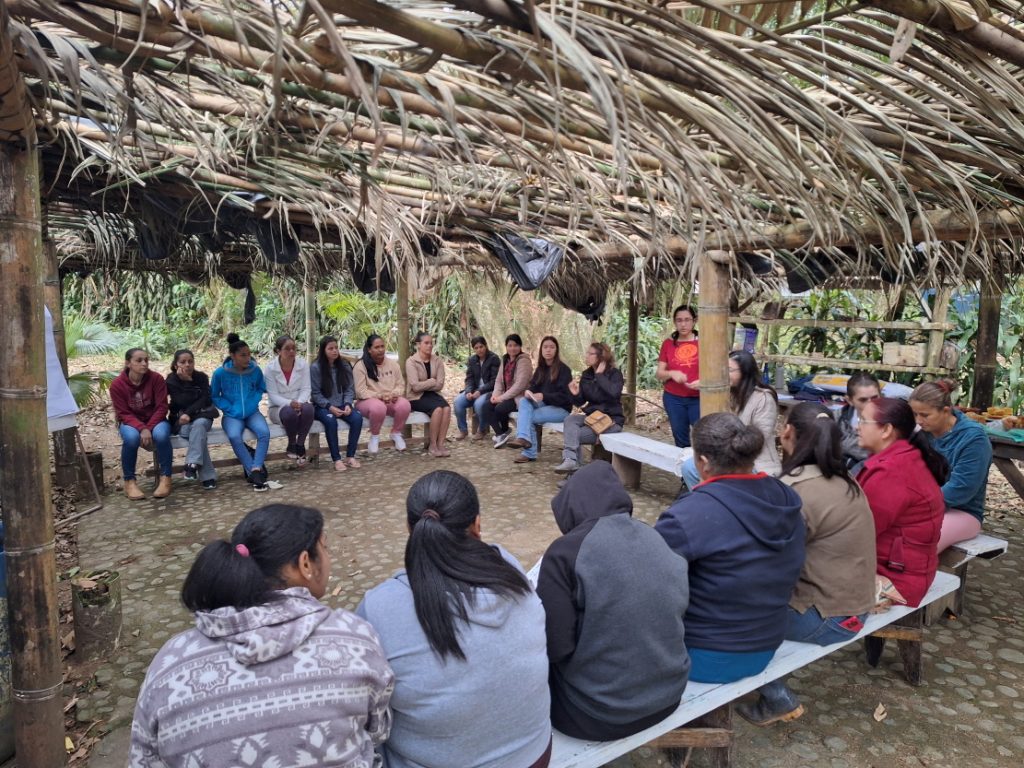
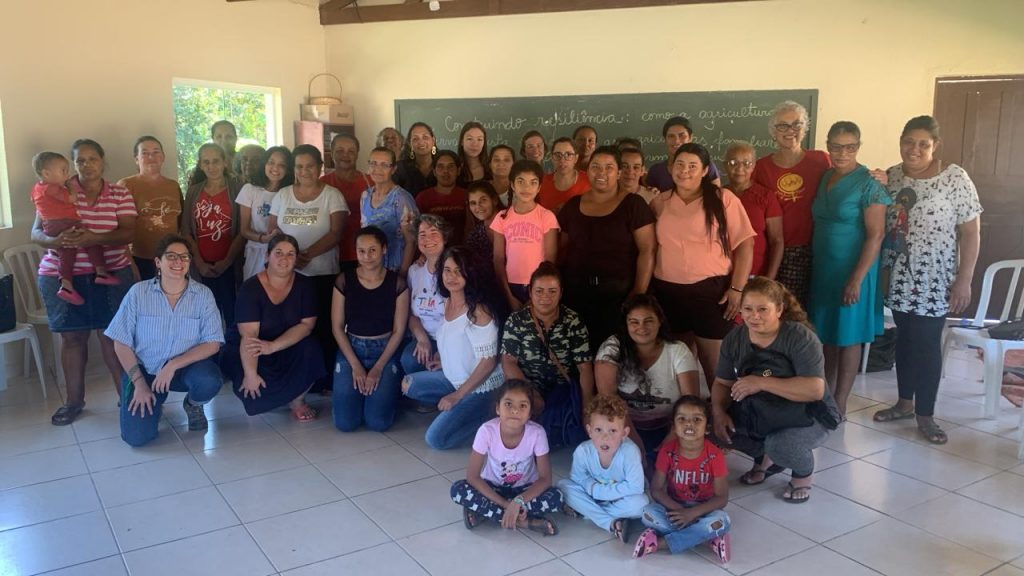
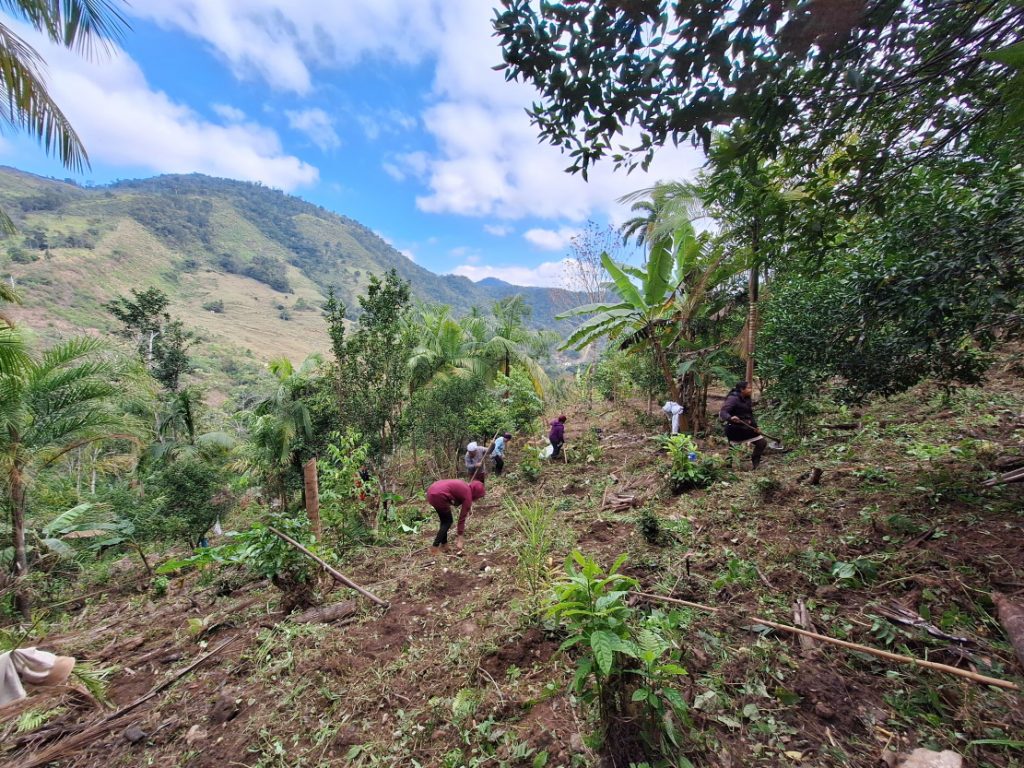
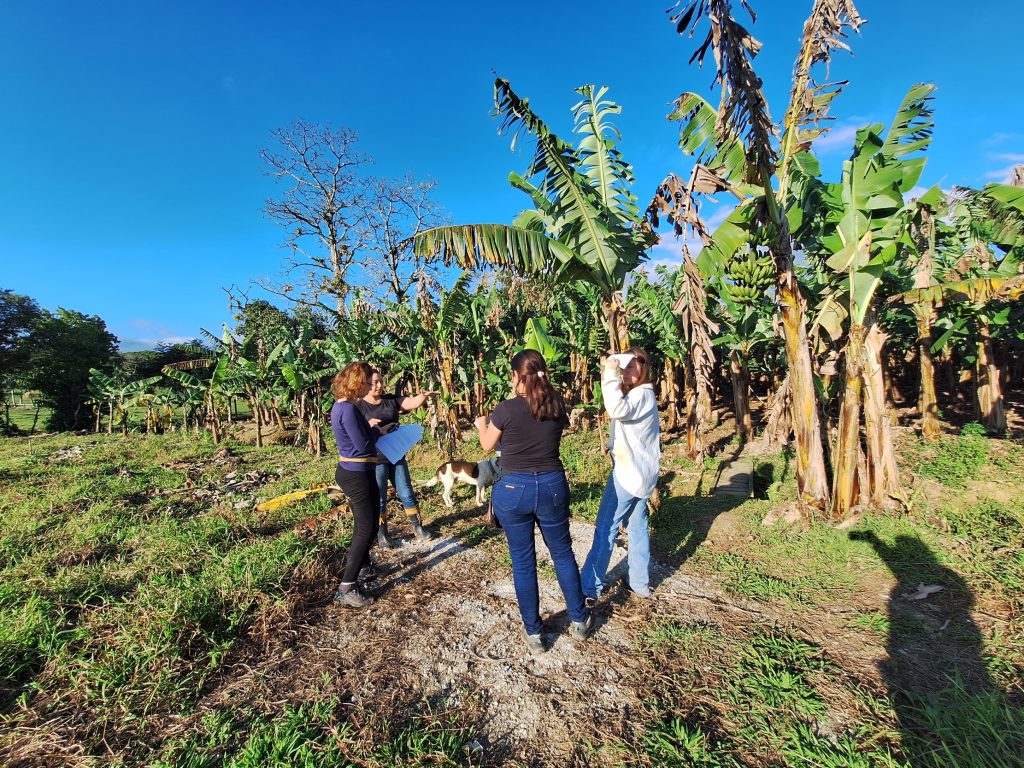

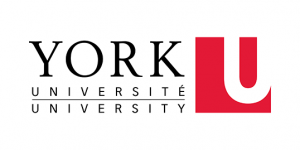


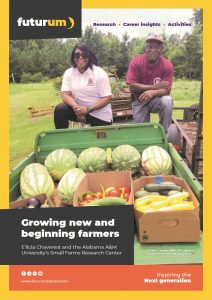
0 Comments